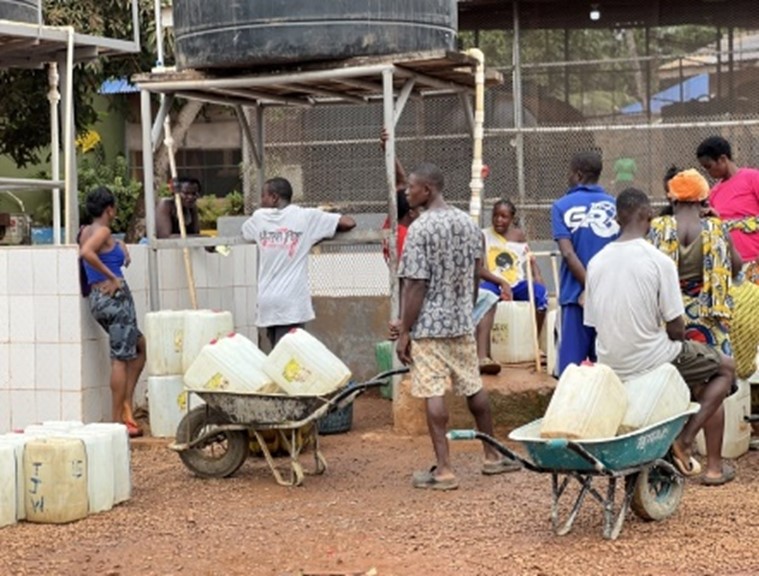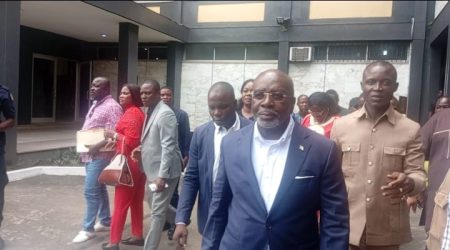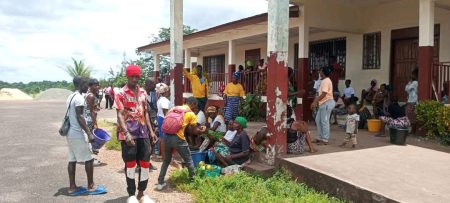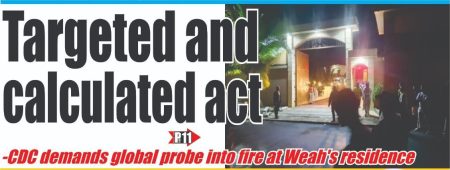The residents of Zena Hill, a community nestled within GSA Road in Paynesville, Liberia, are grappling with a persistent and alarming water crisis. Their plight centers around the lack of access to safe, clean drinking water, a fundamental necessity for human health and well-being. The only water facility serving the community is allegedly contaminated, forcing residents into a difficult choice: risk waterborne illnesses by using the available water or struggle to afford the exorbitant cost of purchasing cleaner alternatives. This scarcity has created a significant financial burden on families and instilled a pervasive sense of anxiety about their health and future.
The daily routine for many in Zena Hill revolves around the desperate pursuit of water. Those hoping to obtain free water from the community facility must queue early in the morning, often between 5 and 6 a.m., only to find long lines and limited supply. This often necessitates the purchase of water, even for those who initially intended to utilize the free service. The price of a gallon of water can fluctuate between 20 and 25 Liberian Dollars, a considerable expense for many households. Some residents, like Philip Sumo, report spending up to 500 Liberian Dollars every two days just to secure five gallons of water for their families. This financial strain underscores the severity of the water shortage and the vulnerability of the community.
The residents’ struggle for clean water is not a recent development but a long-standing issue that has plagued Zena Hill for years. Their pleas for help have seemingly fallen on deaf ears, despite attempts to engage their representative, Samuel Enders, and the Liberia Water and Sewer Corporation. The lack of response from authorities has left residents feeling abandoned and frustrated. Those who can afford the expense resort to buying mineral water daily, while others are left with no choice but to depend on the potentially contaminated water from a local vendor known as Yankee Fresh Water. This disparity highlights the inequitable impact of the water crisis, disproportionately affecting the most vulnerable members of the community.
Yankee Fresh Water, while providing a much-needed service, has become a source of concern for residents due to its questionable purification practices. The facility’s owner allegedly pumps water directly from a well located far from the main station, transporting it through multiple pumps without any apparent treatment or purification process. This untreated water is then stored in a poly tank before being sold to the community for consumption. The lack of proper filtration and treatment raises serious concerns about the safety of the water and the potential health risks it poses.
Residents report an increase in waterborne illnesses, directly linking them to the consumption of water from Yankee Fresh Water. They express fear and anxiety about the health implications of using this water, but the lack of alternatives leaves them with few options. Their reliance on this potentially harmful water source underscores the desperation of their situation and the urgent need for intervention. The community’s collective health is being jeopardized by the absence of safe and accessible drinking water, a fundamental human right.
The residents of Zena Hill are making a heartfelt plea to the government, non-governmental organizations (NGOs), and other relevant authorities to intervene and address this critical water crisis. They are seeking immediate action to provide safe, purified drinking water to their community. Their call for help is a testament to their resilience and determination to secure a healthier future for themselves and their families. They hope that their voices will finally be heard and that tangible solutions will be implemented to alleviate their suffering and provide them with the basic human right of access to clean water. Their plight serves as a stark reminder of the urgent need for sustainable water management practices and infrastructure development in vulnerable communities.














